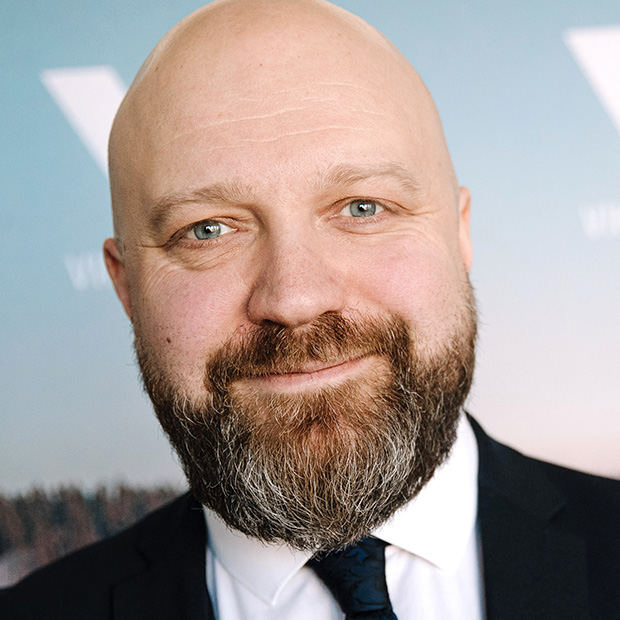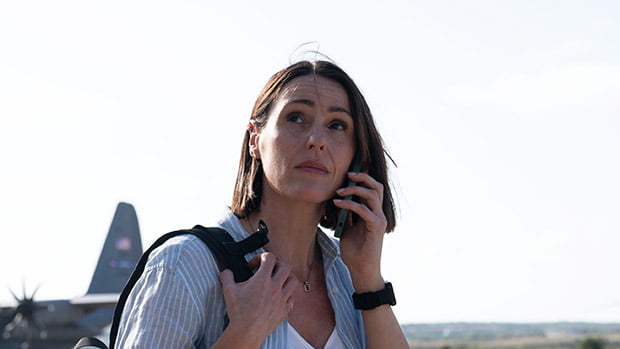 Estonian public broadcaster ERR is making good progress with its streaming service Jupiter and is looking to produce higher quality in-house drama that sells abroad, says board member Toomas Luhats.
Estonian public broadcaster ERR is making good progress with its streaming service Jupiter and is looking to produce higher quality in-house drama that sells abroad, says board member Toomas Luhats.
These are proving to be eventful times for the Estonian public broadcaster Eesti Rahvusringhääling (ERR), and especially its free video-on-demand (FVoD) service Jupiter.

Toomas Luhats
According to Toomas Luhats, board member at ERR and responsible for TV programmes, VoD and acquisitions, the latter has over the last year “started to change our viewers’ habits and is gaining more and more interest among people. Not only are young people watching it, but also the older generation has found it.”
Jupiter was launched in April 2020, and Luhats was responsible for its in-house development with the help of what he calls a “brilliant team.”
Describing the project as “very interesting” from an IT perspective and also from the point of view of putting together the team to help understand peoples’ needs, he says the plan required some learning because the FVoD model used by Jupiter was a new departure for the Estonian market. Up until then, the Baltic state only had some subscription video-on-demand (SVoD) and transactional video-on-demand (TVoD) services.
Reflecting on other areas of ERR’s business, Luhats says that, significantly in the last year or so, viewers for the broadcaster’s linear TV channels have also held up well, with content, such as flagship programme 1St Studio on the ETV channel, boosting viewer numbers.
An important recent development for ERR has been the return of Eesti Telefilm, the drama production unit that was originally created in 1956. “When we produce or commission a drama series, we try to do this through Eesti Telefilm, which is not a [separate] company but a unit within ERR,” explains Luhats.
The exec adds that the broadcaster’s aim is to produce at least two drama series a year through Eesti Telefilm, with a view to selling them internationally. It is also currently engaged in coproductions with several countries, including Ukraine, Italy, Latvia and Germany. These complement its successful partnerships with local telco companies Elisa and Telia, resulting in a diverse portfolio of coproduced content.
“We were not very happy with the production of drama series or their quality. We had made some before and drama series development wasn’t as good as some other fields that we are operating in,” he recalls. “Then we decided that we need to do more drama series productions, try to find distribution for them, and try to sell them internationally.

Traitor is inspired by recent spy scandals in Estonia
“Now we have managed to greenlight three series – one has already come out – and some new talks are also ongoing so we hope we will increase the quantity of drama series in Estonia and also maybe European drama series will benefit from that because we will do some coproductions as well.”
ERR’s line-up includes Detective von Fock, A Girl from Tallinn and Country Chaos. They vary in length from 45 to 60 minutes and span from six to eight episodes per season.
Country Chaos is now in its first season and currently available for telco clients. Its TV and VoD premiere on ERR will be in March. Meanwhile, Detective von Fock and A Girl from Tallinn are in development, with shooting due to start this summer.
Elsewhere, Luhats points to one particularly high-quality drama series called Traitor, a thriller inspired by recent spy scandals in Estonia. The show is produced by Estonian production company Kassikuld for ERR and telco/streamer Elisa Estonia.
Written by prize-winning playwright and screenwriter Martin Algus, Traitor is a thriller that begins in 2004, just before Estonia joined Nato and became a top target for Russian intelligence agencies. It is now in its third season, is proving to be a resounding success for the broadcaster at home, as well as abroad.
Indian distribution company GoQuest Media, with which the broadcaster has a close relationship, has sold the series to broadcasters and platforms in several countries worldwide, including Japanese channel Wowow, Latin American SVoD service FlixLatino, Disney+ Hotstar in India and Australian public broadcaster SBS.
“This [is something] we wouldn’t have dreamt of,” says Luhats.
The exec sees this move into producing more drama series as one of the most important developments at ERR this coming year. The broadcaster’s viewers are very keen on local dramas, but also like to watch drama series from all over the world, though the broadcaster mostly shows ones from Europe and the UK. These include the UK drama series, Vigil, which was produced by ITV Studios-owned World Productions for BBC One and Peacock and is now in its second season.

Vigil was produced by ITV Studios-owned World Productions for BBC One
“We would like to give them what they would like to watch. However, financial constraints have held us back a little,” he notes, referring to homegrown productions.
But there are other signs of a brighter future for production, this time closer to home. Jupiter, Luhats points out, now also has a section that features coproductions with young filmmakers.
Nevertheless, all this is taking place against the backdrop of the war in Ukraine, which has understandably had far-reaching effects in Estonia and the other Baltic countries. For ERR, the main one has been seen on its Russian language channel ETV+.
“We have one of the few Russian-speaking channels in Europe that is journalistic,” explains Luhats. What is more, “it has been quite hard for the channel because from day one, when the full-scale war started, we stopped all business with Russia. Therefore, our acquisition team stopped buying in Russian content from the Russians and we are trying to move more towards Ukraine and show and acquire more Ukrainian content.”
ETV+ is also now producing more Russian-language content in-house, as well as showing Russian-language content produced in Ukraine.
One of the key features of ETV+ is its news output, which according to Luhats, is objective and shows what’s really happening. He, nevertheless, concedes that there are some people that criticise it for not reflecting the news on channels in Russia, “but obviously that’s propaganda.”
All told, ERR currently operates three TV channels – ETV and ETV2, both of which are in Estonian, and the Russian-language ETV+ – as well as four radio stations, one of which (Raadio 4) is in Russian.
Serving a market with a population of only 1.36 million people, ERR faces competition from the commercial broadcasters Duo Media Networks and TV3 Group. The former has a portfolio that includes 19 TV channels in the Baltics and Middle East and six radio stations in Estonia, with its flagship channel being the long-established Kanal 2, while the latter’s interests include three free-to-air channels and the streaming service Go3.
Commenting on the streaming market in Estonia, Luhats says ERR believes Jupiter is currently the market leader though this is based on estimate subscriber numbers (several services, including Netflix, do not release subs figures for the country).
The exec also feels that despite the presence of players such as Jupiter, Netflix, Amazon Prime and Go3 (Viaplay has signalled its intention to leave the Baltics by summer 2025), the market is not yet mature. Furthermore, in his view, there is potential for a good AVoD service in the market at some stage in the future.
Looking ahead, Luhats sees the war in Ukraine as the biggest threat to the business. Yet despite this, it is already helping ERR reflect on its business and look to, as he puts it, “innovate a bit more, pushing the limits a bit further.” This certainly appears to be the case with the way it has developed its Russian-language channel ETV+ since the start of the conflict.
Interestingly, and perhaps not surprisingly, ERR has a good working relationship with its counterparts in Latvia and Lithuania. This looks likely to be strengthened still further following a coproduction meeting between all three in the Latvian capital, Riga, on February 15. One of the first initiatives of its kind, it addressed the possibilities of working together on pan-Baltic projects and, according to, Luhats could even result in some joint broadcasts next year.














































